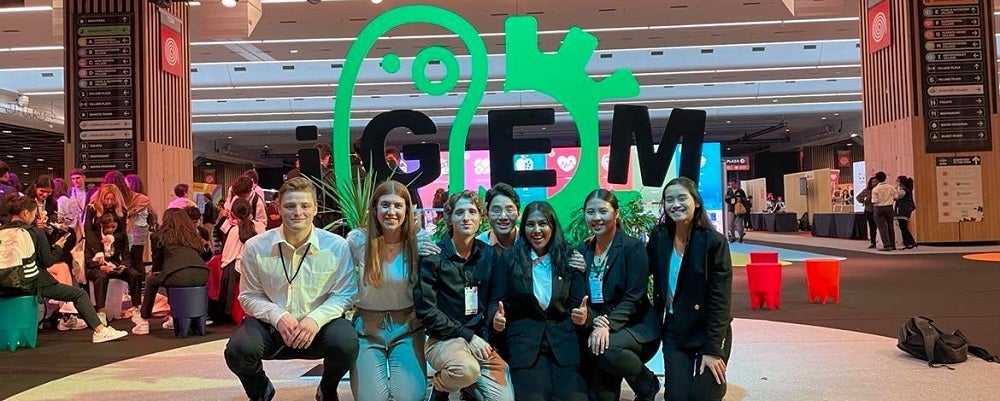
Waterloo iGEM team members Denver Winch, Talyor Roth, Adrian Foell, Anothny Dang, Rajosree Paul, Jessica Zhang, Wendy Lu
University of Waterloo’s iGem team won the gold medal at the 2022 Jamboree which took place in Paris, France in October.
iGEM is a non-profit organization that hosts the international Giant Jamboree competition each year at which students share how they build, model, and study the applications and effects of engineered biological systems to solve global challenges.
The Waterloo iGem team consists of 45 interdisciplinary members from the University of Waterloo. The team bioengineered yeast to produce the two main components in cannabis, cannabinoids, and terpenes, which have garnered interest due to their therapeutical promise ranging from treating multiple sclerosis to reducing nausea induced by chemotherapy.
After the legalization of cannabis in Canada, it has been noted that the mass production of marijuana plants is not only labour-intensive, and time-consuming, but it also uses up an abundance of resources such as water and land, contributing to deforestation.
It takes eight to twelve months to produce dry cannabis buds, whereas yeast cells producing cannabinoids and terpenes can be grown in a flask in 24 to 48 hours. The process also uses no light and would work well in urban settings.
Adrian Foell, a fourth-year student, was one of the team members. As a Chemical Engineering student, Adrian felt he was uniquely able to develop the mathematical models of the project that bridged the gap between molecular biology and large-scale industrial production.
Adrian took on the role of lab supervisor with the encouragement and training of Chemical Engineering post-doctoral fellow M. Reza Roushan who has a specialization in molecular biology. Roushan and chemical engineering Professor Valerie Ward assisted with the project in the Ward lab.
The team was able to isolate the specific genes required to produce cannabinoids and terpenes from the Cannabis sativa plant and incorporated them into the yeast genome to produce these active chemical compounds.
“If DNA is the language of life, then we can use that DNA to produce any molecule imaginable,” said Foell.
Leveraging synthetic biology, chemical engineers are turning microorganisms of all sorts into “cell factories” to produce a great assortment of valuable chemicals at an industrial scale. Replacing oil and gas as the main feedstock for organic synthesis is a key step toward sustainable development.
“There are many appealing projects running under the supervision of chemical engineering professors Valerie Ward and Marc Aucoin using molecular biology to modify microorganisms such as yeast, bacteria, algae, and viruses to solve global challenges,” said Roushan.
The last part of the project that the iGEM team is still working on is quantifying the cannabinoids and terpenes production in the Ward lab.